
Gen Z Pet Trends 2025: How They're Reshaping the Pet Industry
Gen Z's Pawprint: Reshaping the Pet Industry in 2025
Generation Z is significantly transforming the pet industry as it enters a new era of pet ownership. Unlike their predecessors, Gen Z views pets as integral family members, emphasizing emotional bonds that influence their purchasing decisions. This unique relationship drives a priority for high-quality and sustainable pet products, marking a departure from traditional views on pet care.
Research indicates that Gen Z pet owners spend an average of $178 per month on pet care, reflecting a commitment to provide their animals with the best possible nutrition and care. As this generation increasingly takes the reins of pet ownership—accounting for 16% of U.S. pet owners by 2022, up from 11% in 2018—the industry must adapt to the evolving landscape. This article explores how Gen Z is reshaping pet ownership, examining their spending habits, motivations, and the changes made by retailers to meet these new demands.
A New Approach to Pet Ownership
Gen Z's approach to pet ownership stands out from prior generations in several ways. This generation places immense value on emotional support and companionship derived from their pets. Recent surveys show that 72% of Gen Z pet owners consider their pets family members, a significant increase over the 58% of millennials who share this sentiment. This humanization of pets drives spending on health-focused products and services, as young pet owners seek to provide a nurturing and fulfilling environment for their animals.
The connection between Gen Z and their pets is evident in their lifestyle choices. This generation integrates pets into daily life, using social media platforms to share experiences and connect with fellow pet owners. Such shifts illustrate a redefinition of responsible pet ownership that departs from the functional roles pets previously held in society.
/cdn.vox-cdn.com/uploads/chorus_asset/file/22336881/untitled_8560.jpg) Image: Gen Z pet owners enjoying time with their pets at a café. Source: Vox
Image: Gen Z pet owners enjoying time with their pets at a café. Source: Vox
Understanding Gen Z's Driving Forces
Several key factors drive Gen Z's engagement with pet retailers, shaping their purchasing patterns in profound ways. First among these factors is convenience. Young consumers prioritize ease of shopping, valuing online platforms that streamline the purchasing process. Additionally, Gen Z is drawn to brands that align with their social values, particularly regarding sustainability.
A substantial portion of Generation Z consumers—65%—are influenced by brands' commitments to social responsibility. This cohort seeks out companies that practice ethical sourcing and showcase an awareness of environmental issues. Their preference for premium products is influenced by a willingness to pay higher prices for items that reflect their values.
This generational shift spurs a broader transformation within the pet retail landscape. Retailers are compelled to adapt their offerings, ensuring that they align with the evolving expectations of their clientele.
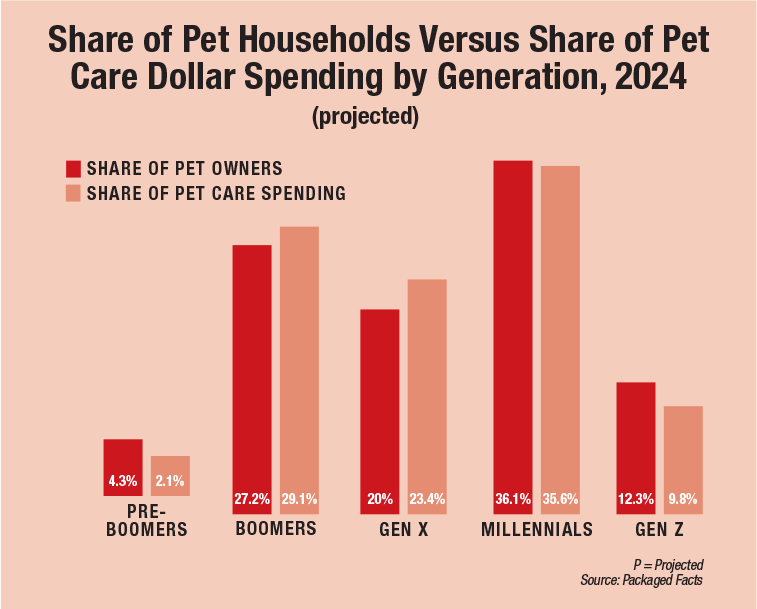 Image: Graph showing Gen Z spending trends and sustainability commitment in pet purchases. Source: Pet Product News
Image: Graph showing Gen Z spending trends and sustainability commitment in pet purchases. Source: Pet Product News
Adapting Pet Retailer Strategies
As Gen Z's influence grows, pet retailers are appropriately adjusting their product lines and marketing strategies to resonate with this demographic. Retailers are introducing more natural and organic options, along with innovative health-monitoring devices, to appeal to Gen Z's health-conscious preferences. This generation is not only interested in high-quality food but also in wellness products that protect their pets' health.
Retailers now focus on creating personalized shopping experiences. Customizable products have become increasingly popular as brands recognize that Gen Z values unique offerings. Pet retailers are also leveraging popular social media platforms like TikTok and Instagram, emphasizing visual storytelling to engage these tech-savvy consumers.
The focus on pet-friendly shopping experiences is another notable trend. Approximately 30% of Gen Z pet owners consider it essential for retailers to welcome pets in-store, indicating a shift toward incorporating pets into everyday shopping experiences.
 Image: Innovative and eco-friendly pet products showcased in retail. Source: Sustainable Jungle
Image: Innovative and eco-friendly pet products showcased in retail. Source: Sustainable Jungle
The Rise of Sustainable Choices
Sustainability increasingly influences Gen Z's purchasing decisions in the pet industry. This generation demonstrates a strong preference for ethically sourced products that minimize environmental impact. Research reveals that 55% of Gen Z consumers are willing to pay more for products from companies with a commitment to social and environmental responsibility.
The demand for sustainable options extends across various pet products, from organic foods to eco-friendly toys. The organic pet food market is projected to grow, driven by Gen Z's focus on responsible consumerism. Brands that recognize this shift are more likely to thrive, as they adapt their practices to accommodate an environmentally conscious consumer base.
 Image: Comparison of traditional versus eco-friendly pet products. Source: Shopify
Image: Comparison of traditional versus eco-friendly pet products. Source: Shopify
Technology's Role in Pet Care
Technology plays a pivotal role in reshaping how Gen Z manages their pets' needs. Numerous applications now facilitate health monitoring, nutrition tracking, and food delivery, enhancing convenience for pet owners. Surveys indicate that approximately 40% of Gen Z pet owners utilize apps for various aspects of pet care, highlighting a trend toward tech integration.
Smart home devices, such as automatic feeders and GPS trackers, are gaining popularity among this generation. These innovations simplify pet ownership, making it easier for busy individuals to care for their animals. Additionally, online communities provide spaces where pet owners can exchange advice and tips, fostering a sense of belonging and shared experience that aligns with Gen Z's preferences.
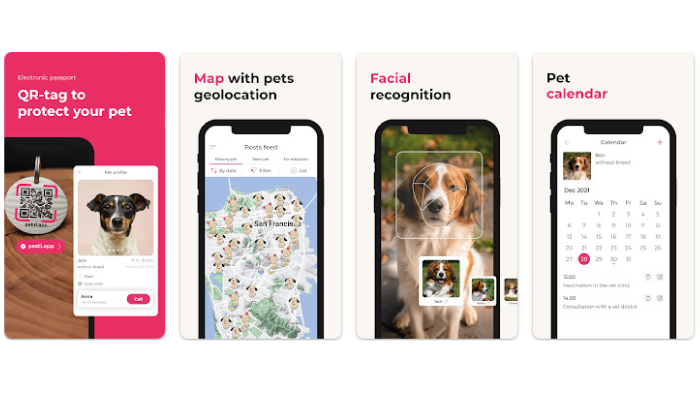 Image: Screenshot of popular pet care apps used by Gen Z. Source: Nimble App Genie
Image: Screenshot of popular pet care apps used by Gen Z. Source: Nimble App Genie
Social Media's Influence
Social media profoundly impacts Gen Z's pet ownership experiences. The role of influencers can significantly sway brand perception and purchasing decisions among young consumers. Platforms such as Instagram and TikTok have fostered a new wave of pet content creators, whose engaging narratives and creative visuals can generate considerable traction.
Research indicates that over 70% of Gen Z follows pet influencers on social media, resulting in increased brand loyalty and affinity. The proliferation of hashtags advocating for responsible pet ownership has further amplified the visibility of these issues, facilitating conversations around pet care and ethical practices.
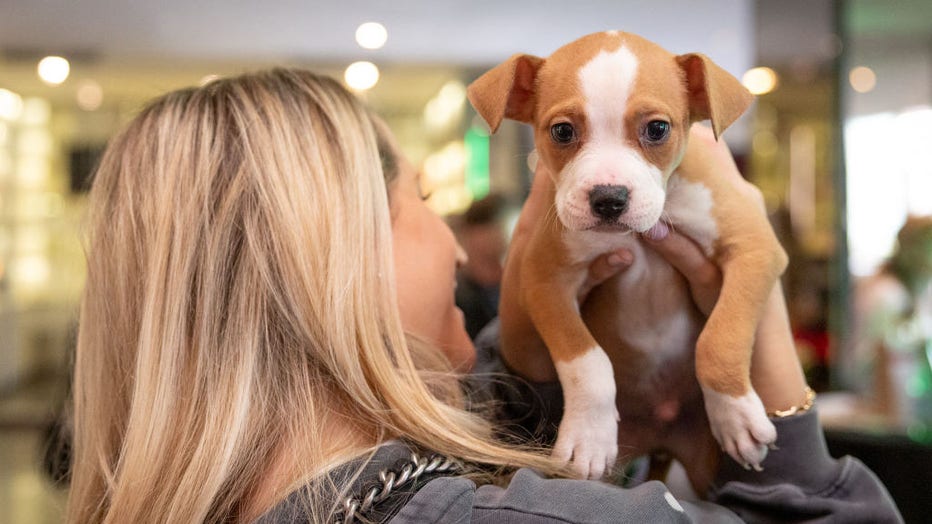 Image: Collage of viral pet accounts on social media showcasing Gen Z's influence. Source: Fox TV
Image: Collage of viral pet accounts on social media showcasing Gen Z's influence. Source: Fox TV
Personalization as a Priority
Gen Z's preferences for personalized products and services reflect their desire for individualization in pet ownership. This cohort values customizable offerings, whether regarding pet apparel or tailored nutrition plans. Approximately 65% of Gen Z pet owners report a preference for products that cater to their pets' unique needs.
Brands that understand the importance of personalization can cultivate consumer loyalty and brand engagement. Offering tailored options allows retailers to cater more effectively to a demographic that places significant importance on uniqueness and individual expression.
 Image: Customized pet items that reflect Gen Z's preference for personalization. Source: PrideBites
Image: Customized pet items that reflect Gen Z's preference for personalization. Source: PrideBites
Health and Wellness Trends in Pet Industry
Health and wellness trends are increasingly influenced by Gen Z's focus on holistic pet care. Young pet owners actively seek organic and holistic food options, concerned with nutrition and overall health. Services that promote wellness—such as dog yoga classes or pet therapy—are gaining traction, reflecting the demand for integrated care strategies.
The organic pet food market is expected to grow as Gen Z advocates for a healthier lifestyle for both themselves and their pets. This generation's emphasis on nutrition and health consciousness is prompting brands to reformulate their products to align with consumer expectations.
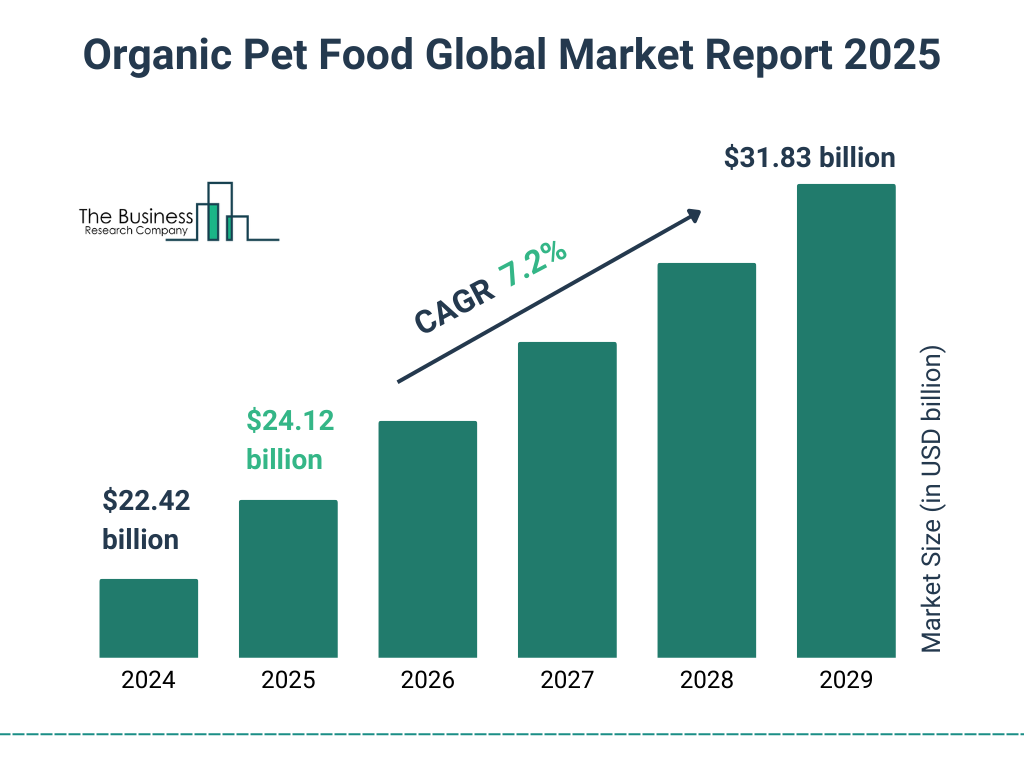 Image: Projected growth of the organic pet food market driven by Gen Z’s preferences. Source: Business Research Company
Image: Projected growth of the organic pet food market driven by Gen Z’s preferences. Source: Business Research Company
The Future of Pet Ownership
As Gen Z continues to penetrate the pet industry, their influence will certainly persist beyond 2025. Projections suggest that this cohort will make up over 35% of all pet owners globally. Brands must adapt to these changes, emphasizing high-quality products and experiences that resonate with the values of this generation.
Recognizing Gen Z's preferences for sustainability, personalization, and technology will be crucial for retailers aiming to succeed in this rapidly evolving market. These young pet owners are not merely consumers; they are pioneers redefining the standards of pet ownership and care.
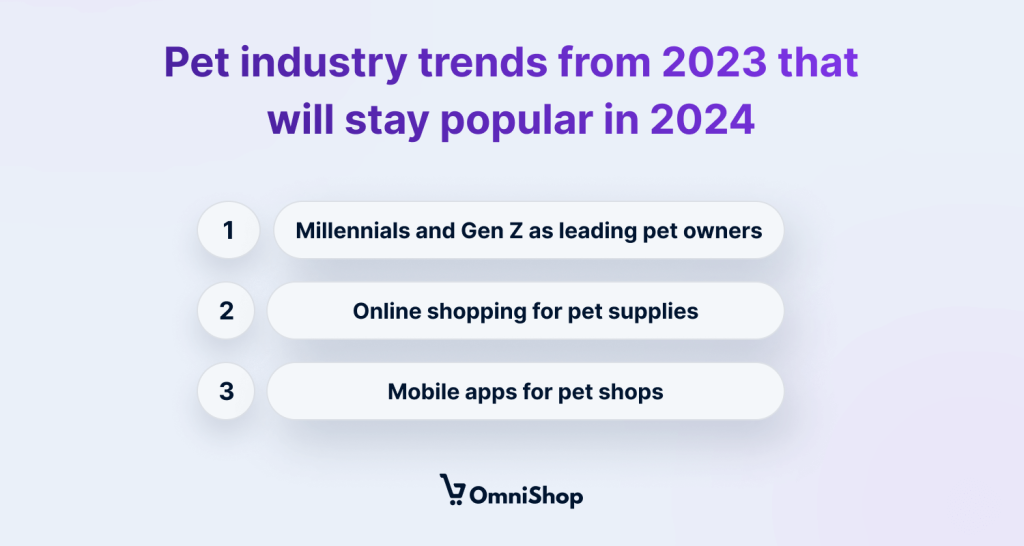 Image: Infographic illustrating future trends in the pet industry shaped by Gen Z. Source: Omni Shop
Image: Infographic illustrating future trends in the pet industry shaped by Gen Z. Source: Omni Shop
In conclusion, Gen Z's impact on the pet industry is transformative. This generation's focus on ethical and sustainable practices, personalized products, and health-oriented services reflects broader societal trends. By adapting to these expectations, brands can build meaningful relationships and loyalty among a generation that is reshaping the landscape of pet ownership. This new paradigm emphasizes not just the care of pets, but also the values that characterize today's consumers and the future of the industry.
